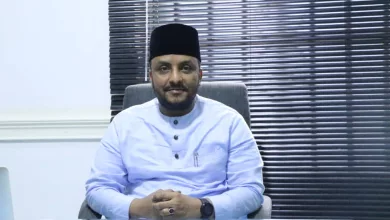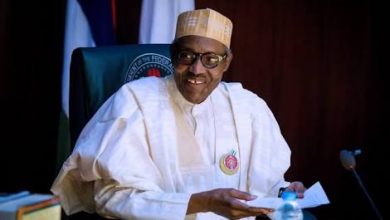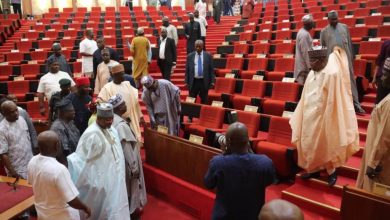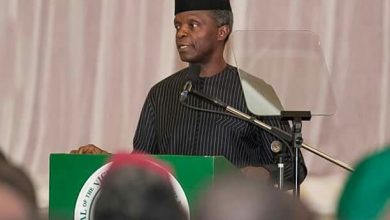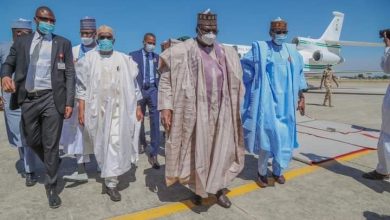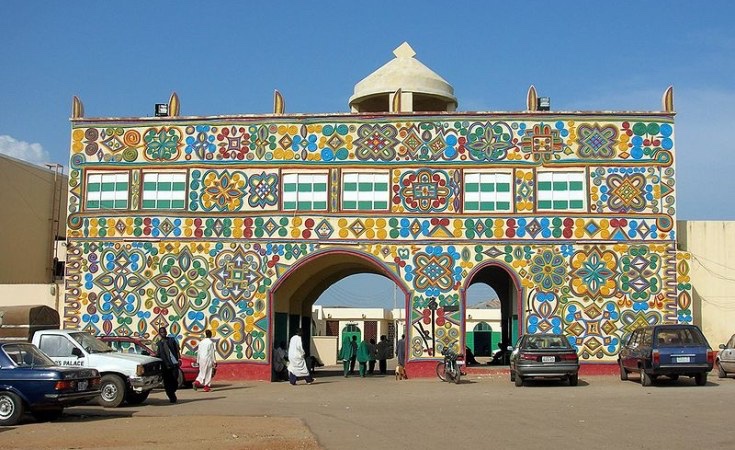
Zazzau Emirate: How To Select A New Emir According To The Law, By Nasir Lawal
Following the passing of the 18th Emir of Zazzau Alhaji Shehu Idris and as required by Law and tradition, eligible Prince’s of the ruling houses of the Zazzau emirate have indicated interest for the vacant and revered stool. The people of the Emirate and Nigerians as a whole are currently awaiting the final choice of the new Emir to be appointed by Governor Nasiru Ahmed El Rufai as required by law. It is understood that 13 Prince’s had indicated interest and are all waiting with their various supporters for the outcome of the selection process to conclude.
The last few days and weeks have therefore been filled with lots of hue and cry over the issue of a rather irregular list purportedly being that made by the kingmakers of the Zazzau Emirate council, accusations of financial inducements, underhand dealings and a directive by the state government for a repeat of the process and all sorts of rumours and insinuations. Some of these have been confirmed by reports and admissions by the state government and others unsubstantiated both in the social media and through verbal communication between people. This has given rise to a lot of tension and excitement among the different competing candidates and their supporters. Not surprisingly all parties have tried to control the narrative in their favour.
Understandably this has been in relation to the succession battle for the Revered Throne of the Zazzau Emirate to produce the 19th Emir of Zazzau to continue in the good works and foot steps of their forbearers.
Against this background of seeming confusion, it therefore becomes imperative to examine in depth the law, practice and convention that governs the selection and appointment of an emir.
The significance in this case is the years it has taken to exercise this law on the Zazzau emirate as the last emir was on the throne for more than four decades, 45 years to be precise and as such it is a new event to majority of the participant albeit an old tradition to be repeated.
There is existing an established law supported by a convention for the replacement of a chief or an Emir in the event of the vacation of the seat either through death, resignation , abdication or removal. This law is the Appointment and Deposition of Chiefs at Section 25 of the Northern Nigeria Legal Code which came into force on the 3rd July 1930 and still remains in force today. An examination of the law will provide details of its provisions and throw more light on the process we are about to witness leading to the selection of an Emir.
The law is at Chapter 25 and titled : CHIEFS (APPOINTMENT AND DEPOSITION) ; A law to provide for the Appointment and Deposition of Chiefs
DATE OF COMMENCEMENT 03 July 1930
The law provide the following provisions;
1. This law may be cited as the Chiefs (Appointment and Deposition
INTERPRETATION KDSLN 5 of 1982
2 (1) In this Law-
“Chief” means any person for the time being recognised by the Governor as a chief and includes an Emir., “court” means a magistrate’s court, a District Court, The Hugh Court , The Federal High Court, The Federal Court of Appeal; “property” includes all regalia and other things whatsoever attaching to a chief by virtu of his chieftaincy.
KDS 11 of 1983
APPOINTMENT OF CHIEFS IN ACCORDANCE WITH CUSTOMARY LAW AND PRACTICE
3 (1) Upon the death, resignation or deposition of any chief or any head chief other than a chief of a kind referred to in 4, the Governor may appoint as the successor of such chief or head chief any person selected in that behalf by those entitled by customary law and practice to select in accordance with customary law and practice
(2) Where no selection is made before the expiration of such interval as is usual under customary law and practice, the Governor may himself appoint such person as he may deem fit and proper to carry out such duties incidental to the chieftaincy as it may be necessary to perform.
(3) In the case of any dispute , the Governor after due enquiry and consultation with persons concerned in the selection, shall have the final say as to whether the appointment of any chief or head chief has been made in accordance with customary law and practice
APPOINTMENT OF CHIEFS OTHER-WISE THAN IN ACCORDANCE WITH CUSTOMARY LAW AND PRACTICE KDS 11 of 1983
4 (1) The provision of section 3 shall not apply to the office of chief or head chief which has not originated form customary law and practice but has been created by legislation or administration act if a competent authority , but the provision of sub section (2) and (3) of this section shall apply thereto
(2) Upon the death , resignation or deposition of any chief or head of the kind described in sub section (1) above , the Governor may appoint any person selected in that behalf by those entitled to select in accordance with the provisions of any order made by the Governor prescribing the method of appointment of such chief or head chief.
(3) When no selection is made before the expiration of any interval prescribed in any such order , the Governor may appoint any person he may deem fit and proper to carry out such duties incidental to the chieftaincy as it may be necessary to perform
(4) In any case of any dispute the Governor , after due inquiry and consultations with persons concerned in the selection shall have the final say as to whether the appointment of any chief or head chief has been in accordance with the provisions of any order made by the Governor
GRADING IF HEAD CHIEFS KDS 11 of 1983
5. The Governor May grade the office of a head chief as first, second or third class , according to the size and importance of such office.
DEPOSITION OF CHIEFS KDS 11 of 1983
6. The Governor after due inquiry and consultation with the persons concerned in the selection, may depose any chief or head chief , if he is satisfied that such deposition is required according to customary law and practice or is necessary in the interest of peace , order or good government.
POWER OF GOVERNOR TO BE EXERCISED AFTER ADVICE FROM COUNCIL CHIEFS KDSLN 5 of 1982
7. The power of the Governor under the preceding sections of the law shall only be exercised after receiving the advice of the council of chiefs
OATH TO BE TAKEN BY CHIEF
Any person appointed on it after the 1st day of October 1963, as a chief or head chief shall as soon as May be after his appointment take the oath set out in the schedule before the Governor or such other person as he may appoint
9 If any person declines or neglects to take the oath , when any oath required to be taken by him under section 7 is duly tendered he shall;
(a) if he has already entered on his office of chief or head chief vacate the same or ;
(b) if he has not entered on his office of chief or head chief be disqualified from entering on the same
SAVINGS FOR PREVIOUS OATHS TAKEN BY CHIEFS
10. Nothing contained in this law shall affect the validity of any oath taken prior to the 1st day of October 1979 by any person on his appointment as chief or head chief , and any such oath shall be deemed to have been taken under the provisions of this law and shall be as effectual and binding as if taken under the provisions of this law.
CERTIFICATE RESPECTING CHIEF
11. The secretary to the council of chiefs may by a certificate under his hand state that a particular person is or was a chief or head chief of a specified grade at a specified time or during a specified period in the state
DESCRIPTION OF OWNERSHIP OF PROPERTY OF CHIEFS IN CRIMINAL CASES
12. Where in any criminal proceedings it is necessary to name the person to whom any property belongs and that property is property of a chief by virtue of his chieftaincy, it shall be sufficient to name such chief by whichever title such chief is known notwithstanding that no person has been duly appointed or installed as such chief or that there is a dispute in respect of such chieftaincy
This sets out the law governing the Appointment and Deposition of Chiefs (Emirs) in Northern Nigeria. It is a simple law but with room for a lot of interpretations . Within these lines especially at Section 3 (1)(2)&(3) and section 7 the current task of the selection and appointment of the next Emir of Zazzau will be made. Added to this law is the convention under the customary law and practice that provides for the submission of a list of qualified candidates to the Governor for selection of 1 as emir where Conventions in law are generally defined as rules of the constitution which are not enforced by the law courts and subject to political pressure unlike established laws. Further to this there is an understanding of history (from the time of Uthman Dan Fodio ) and tradition to provide for equity and justice through equal representation of all ruling houses in all the Emirates of Northern Nigeria to ensure inclusiveness and fairness that will improve in peace and subsequent development of the Emirates.
Customary law in Nigeria are those practices accepted by members of a particular community as a result of their long established usage. The law also demands equity and justice which leads to the promotion of peace and development in the community.
In further examining customary law vis a vis the rules of convention it should then be that some fluidity would be expected especially to reflect the sign of the times and alter the preconditions for consideration of Prince’s to the exalted office of Emir.
It would seem that sticking to old habits in modern times is akin to living in the past while trying to survive in the present. An amalgamation of current trends especially around setting criteria for selection should reflect the need for modernity. Little wonder there was wide scale criticism of the selection criteria by the kingmakers putting irrelevant issues like the leading of a local area over public service or national honours over qualifications. That led to rife speculations on favouritism of particular candidates over others in an important contest that should really seek to pick out the best and most experienced of the Prince’s that could assist the state and government in moving the Emirate forward in the 21st century.
The choosing of 2 Prince’s from the Katsinawa dynasty that just concluded more than 6 decades on the throne negates the justice issue of the customary law and established convention of the Emirate thereby leaving the beri beri, Mallawa and neighbours sullupawa dynasties to face extinction. This has been one of the glaring points to accuse the kingmakers of complicity and bias. On closer scrutiny it would even appear that the prince’s from the other ruling houses are better qualified but yet some were even totally ignored in the recommendations.
In summary a simple interpretation of the law is that the kingmakers should recommend In line with customary law and practice but based on capacity using an acceptable criteria to reflect the current needs of the emirate and the state government at any given time while the governor can chose from any of the qualified candidates an Emir that will assist the state in reforming the institution to meet the current needs of the people and the state.
In all this there is a need for transparency, honesty and probity in the actions of firstly the kingmakers who are charged with the sacred role of sincerely advicing the Governor to do what is right and in turn the Governor to chose from the list of qualified candidates and to do what is best for the Emirate of Zazzau, Northern Nigeria and by extension Nigeria.
It was therefore perplexing that the Kingmakers reportedly choose two of the three nominees from the Katsinawa Dynasty, given the rotational principle set by the Sokoto Sultanate in the early years of the Emirate, in order to guard against monopoly and ensure a balanced leadership overtime. Delving more into history the story was given of how the British Authorities settled for Jaafaru Ishiyaku as the…….emir in 1937 despite not being on the shorlist because of his Administrative and leadership track record, typewritting knowledge etc. Thus customary law and practice has established that when faced with the power of selection, the Kingmakers and Government of the day had always resorted to issues of capacity, capability and leadership qualities. On closer scrutiny therefore the supposedly leaked scoring sheet of the Kingmakers making the rounds. If true raises more questions than answers them. These are Why state as a criteria the possession of HND/BSC when Educational Qualification is more encompassing; why National Honours when it is so obvious that only one candidate has that. Why wasnt the grading based on each candidate’s strength or weakness in that area.
In view of the foregoing it is therefore the expectation that superior judgement centered around justice, truth, and intrest of the people shall be the guiding principles adopted by the Government, as has been done in the past, by the Sultanate, British colonial authorities and State Governments in choosing a befitting person as the 19th Emir of ZazzU.
May Allah provide them with the wisdom and courage to do what is right. Amen
Nasir Lawal writes from Zaria.


